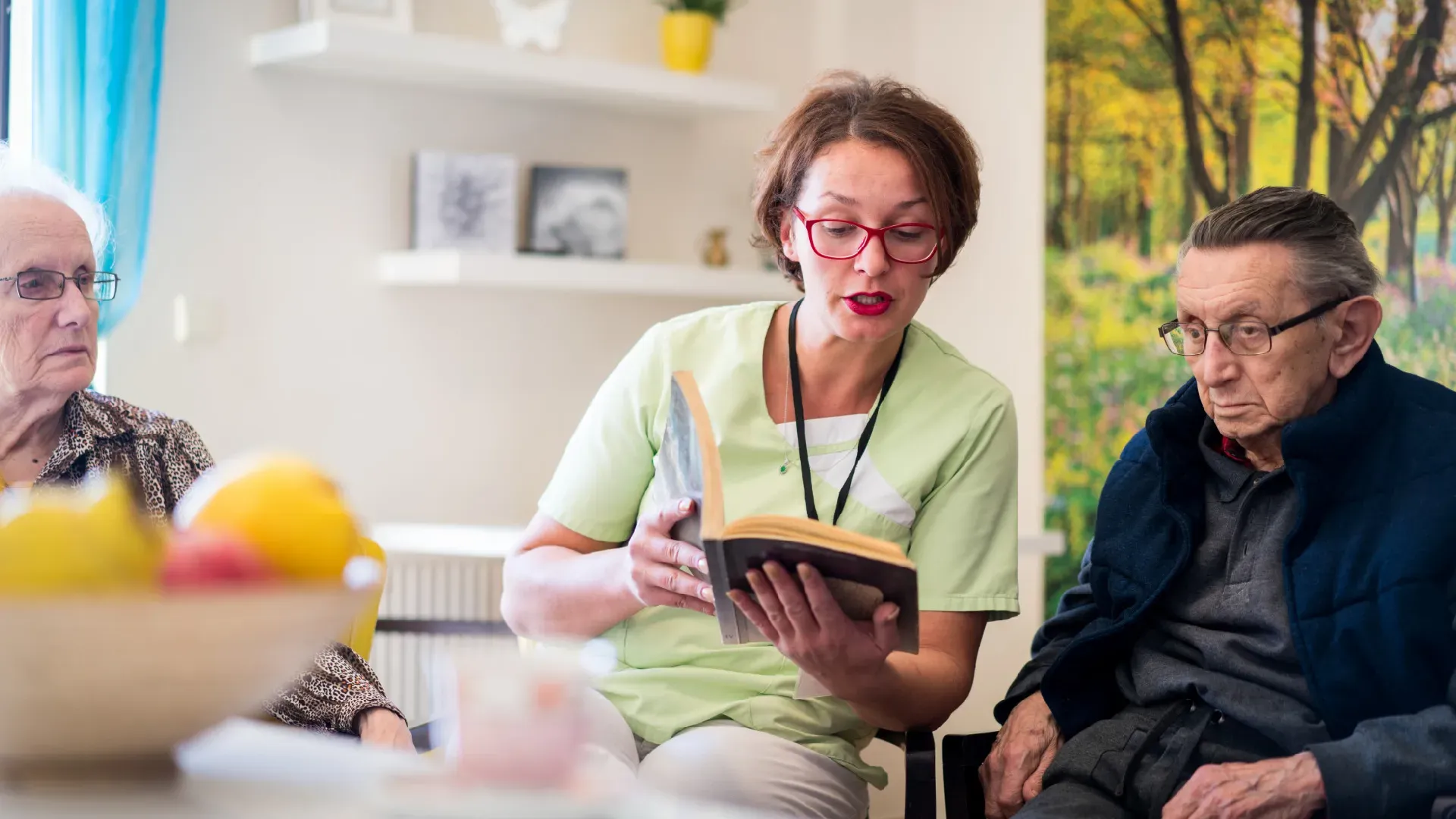Elderly Care Essential: Dos and Don'ts for Geriatric Care
As we age, the importance of proper elderly care becomes increasingly evident. With a growing elderly population worldwide, understanding the dos and don'ts of geriatric care is crucial for ensuring the well-being and quality of life of older adults. Elderly care encompasses a wide range of services, from daily assistance to specialized medical attention, all aimed at helping seniors maintain their independence and dignity.
In this article, you'll discover essential guidelines for providing effective elderly care. We'll explore the unique needs of elderly patients, including their mental health and nutrition requirements. You'll learn about the significance of comprehensive geriatric assessments and how to create person-centred care plans. We'll also delve into important aspects such as pain management, physical activity, and the role of elderly caregivers. By the end, you'll have a clearer understanding of how to offer top-notch care for the elderly in your life.
Understanding the Unique Needs of Elderly Patients
As people age, their healthcare needs become more complex and diverse. To provide effective elderly care, it's crucial to understand the unique requirements of older adults. This understanding encompasses age-related changes, common health concerns, and individual preferences.
Age-related Changes
As you grow older, your body undergoes various physiological changes. These alterations can affect your overall health and well-being. For instance, you might experience changes in your sensory abilities, such as hearing and vision loss. In 2017–18, about one in three people aged 65 and over reported complete or partial deafness, while 93% reported a chronic eye condition. These changes can significantly impact your daily life and require specific care approaches.
Common Health Concerns
Older adults often face multiple chronic health conditions. In 2017–18, 28% of people aged 65 and over had three or more chronic conditions. Some of the most prevalent health issues among the elderly include:
- Cardiovascular disease
- Arthritis and back problems
- Chronic kidney disease
- Respiratory conditions like COPD and asthma
- Dementia
- Diabetes
- Mental health issues
Individual Preferences
To provide person-centred care, it's essential to consider the individual preferences of older adults. This approach involves eliciting an individual's values and preferences to guide all aspects of care. Person-centred care has shown beneficial outcomes, including improved patient satisfaction, well-being, quality of life, and increased health knowledge.
Understanding these unique needs allows for more effective and compassionate elderly care, ensuring a better quality of life for older adults.
Providing Comprehensive Geriatric Assessments
To offer the best care for older adults, you need to conduct comprehensive geriatric assessments. These multidimensional evaluations help you understand an elderly person's functional ability, physical health, cognition, and socioenvironmental circumstances. By carrying out these assessments, you'll be better equipped to develop tailored treatment plans and coordinate care effectively.
Physical Evaluations
When performing physical evaluations, you should focus on key areas that often affect older adults. These include vision and hearing impairments, urinary incontinence, and balance issues. It's crucial to assess for osteoporosis, which can lead to fragility fractures. Additionally, review the patient's medication regimen to identify potential polypharmacy issues, as adverse drug effects can cause preventable problems like falls and confusion.
Cognitive Screenings
Cognitive screenings are essential to detect any changes in memory, language abilities, or personality. These changes might indicate a neurodegenerative disease process or other treatable conditions. The Mini-Cognitive Assessment Instrument is a preferred test for primary care settings due to its speed and accuracy. For a more comprehensive evaluation, consider using tools like the ACE-III, which can help differentiate between various types of dementia.
Functional Capacity Tests
Functional capacity tests assess an individual's ability to perform daily tasks independently. These evaluations typically look at activities of daily living (ADL) and instrumental activities of daily living (IADL). Occupational therapists are well-suited to conduct these assessments, as they take a holistic approach to an individual's needs. These tests help determine if a person requires specific equipment, technology, or modifications to enhance their independence and quality of life.
By conducting these comprehensive assessments, you'll gain a thorough understanding of your elderly patients' needs, enabling you to provide more effective and personalised care.
Implementing Person-Centred Care Plans
To provide effective elderly care, you need to implement person-centred care plans that address the unique needs of each individual. These plans should focus on the goals, preferences, and well-being of the older adult while involving their care partners in the process.
Goal Setting
Setting goals is essential for seniors to take control of their lives and health. When working with older adults, you should:
- Encourage a mixture of daily, short-term, and long-term goals
- Break down larger goals into achievable steps
- Write goals down and create a plan to achieve them
- Track progress and be willing to adjust goals as needed
- Find someone to help hold them accountable
- Celebrate small successes and provide incentives
Remember not to set too many goals, as this can overwhelm the individual and split their focus.
Multidisciplinary Approaches
Geriatric care often requires a team-based approach to manage multiple comorbidities effectively. To implement a multidisciplinary approach:
- Conduct comprehensive assessments across medical, psychiatric, cognitive, social, and functional domains
- Collaborate with professionals from various disciplines to provide holistic care
- Develop personalised treatment strategies that address the complex needs of older adults
- Ensure effective care coordination and communication among team members
- Provide health promotion and education to older adults and their caregivers
- Offer support and training to caregivers to help them cope with challenges
Regular Reviews
Care planning is an ongoing process that requires regular reviews to ensure the plan remains relevant and effective. When conducting reviews:
- Schedule formal opportunities to revisit and update the care plan at least once a year
- Assess whether goals continue to reflect the individual's priorities and circumstances
- Evaluate the effectiveness of current service delivery methods
- Consider whether the client is ready for transition or discharge from the service
- Involve the older adult and their care partners in the review process
- Use the review to guide decision-making about ongoing service delivery
By implementing person-centred care plans with these approaches, you can provide more effective and tailored care for older adults.
Addressing End-of-Life Care and Advanced Directives
As you approach end-of-life care, it's crucial to have open discussions about your preferences and to understand the legal considerations involved. Advance care planning is a process that allows you to express your wishes for future care, ensuring that your values and beliefs are respected even if you're unable to make decisions later.
Discussing Preferences
To begin the process, you should have conversations with your healthcare providers and loved ones about your care preferences. These discussions can happen at any time, even when you're in good health. It's important to:
- Express your values, beliefs, and preferences for care
- Consider your goals for end-of-life care
- Discuss where you'd prefer to receive care (e.g., at home, in a hospital, or in a hospice)
- Involve your family members in these conversations
Legal Considerations
Advance Care Directives are legal documents that outline your future healthcare decisions. In most cases, these directives must be:
- Made in writing (using approved forms in some jurisdictions)
- Signed by you (while you have decision-making capacity)
- Witnessed (sometimes by a health professional)
It's important to note that valid directives must generally be followed by healthcare professionals, even if they refuse life-sustaining treatment.
Palliative Care Options
Palliative care aims to improve your quality of life when facing a life-threatening illness. It focuses on:
- Preventing and relieving suffering
- Addressing physical, psychological, and spiritual needs
- Providing support to your family and carers
You can receive palliative care in various settings, including your home, residential care facilities, hospitals, or dedicated hospice services. To explore available options, consult your GP or care coordinator.
Conclusion
Elderly care is a complex and vital field that demands a deep understanding of the unique needs of older adults. By focusing on comprehensive assessments, person-centred care plans, and addressing end-of-life considerations, we can greatly improve the quality of life for seniors. This approach has a significant impact on their overall well-being, helping them maintain independence and dignity as they age.
To wrap up, the key to providing top-notch care for the elderly lies in balancing medical attention with emotional support and respect for individual preferences. By putting these principles into action, we can create a more compassionate and effective care system for our ageing population. This not only benefits the elderly themselves but also enriches our society as a whole, fostering a culture of respect and care for all generations.
Enjoyed this post?
Share it with your network!










